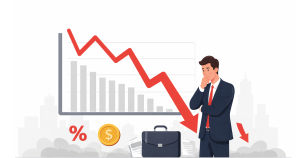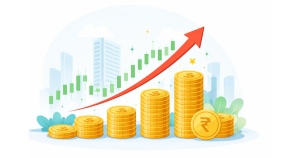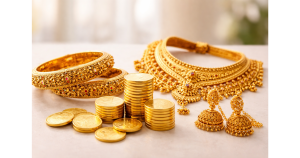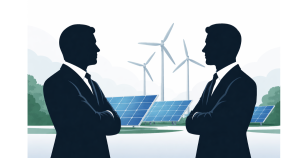In the frothy world of India’s skincare revolution, where the market is bubbling at $28 billion and projected to double by 2030, mCaffeine stands as a bold, invigorating outlier—a brand that swapped the usual serums and creams for the unexpected jolt of caffeine. Launched in 2016, mCaffeine didn’t just enter the fray; it caffeinated it, transforming a simple stimulant into the hero of natural, energizing personal care. Co-founded by Tarun Sharma (CEO), Vikas Lachhwani, Vaishali Gupta (Chief Growth Officer), Mohit Jain, and Saurabh Singhal, the Mumbai-based disruptor has brewed a success story that’s as much about innovation as it is about confidence. With over 100 caffeine-infused products across face, body, hair, and lip care—cruelty-free, vegan, and SLS-free—mCaffeine has sold 25 million+ units, reached 19,000+ PIN codes, and expanded to 30,000+ offline stores while serving customers in 21 countries. Backed by $50.6 million in funding and a valuation of ₹727 crore, it’s not just riding the D2C wave—it’s infusing it with purpose, challenging beauty norms, and proving that a “kick” can kickstart a category. As Tarun Sharma reflected at ET BrandEquity’s World Summit 2025, mCaffeine’s journey is about “creating brands for Indian consumers, with sustainability at the core”—a playbook that’s energized a stagnant market and inspired a new generation of clean beauty rebels.
The Caffeinated Origin: From Teabag Eureka to Skincare Spark
mCaffeine’s genesis is the stuff of entrepreneurial legend—a “eureka” moment born from everyday mishaps. In 2015, Tarun Sharma, a mechanical engineer from NIT Surathkal and IIM Bangalore alum with stints at Bain & Company, was nursing a puffy eye after a late night. A roommate’s offhand suggestion to slap a teabag on it ignited a spark: Why not harness caffeine’s proven anti-inflammatory, antioxidant, and energizing properties for skincare? Sharma dove into research, discovering that while global giants like The Body Shop dabbled in caffeine, no Indian brand owned it. Teaming with his close-knit circle—childhood friends Vikas Lachhwani (tech whiz), Vaishali Gupta (marketing maestro), Mohit Jain (ops expert), and Saurabh Singhal (finance strategist)—they bootstrapped the venture with friends-and-family funding, launching on October 2, 2016, as India’s first caffeine-based personal care line.
The debut lineup was simple yet audacious: Coffee-infused face washes, body scrubs, shampoos, and lotions promising to “addict you to good” with natural, paraben-free formulations. Priced accessibly (₹200-500), they targeted millennials craving efficacy over hype—addressing dryness, acne, and fatigue with caffeine’s science-backed perks. Early days were gritty: Sourcing ethical coffee extracts from sustainable farms, navigating manufacturing in Ahmedabad, and battling a market flooded with fairness creams. But social media virality—Instagram unboxings and “caffeine kick” challenges—ignited traction, hitting ₹1 crore revenue in year one. By 2020, amid COVID, mCaffeine pivoted to immunity-boosting kits, crossing 1 million donors and proving resilience. As Sharma notes, “We weren’t chasing PR; we were chasing purpose”—a mantra that resonated, drawing Series B funding of ₹42 crore in 2020 from Amicus Capital and RPSG Ventures.
The Market Kick: Disrupting with Confidence, Not Conformity
mCaffeine didn’t just caffeinate products—it energized an entire mindset. In a $28 billion beauty market dominated by Unilever and P&G’s chemical-heavy giants, mCaffeine challenged the “fairness obsession” with a “confidence celebration” ethos. Their tagline? “Addicted to Good”—a nod to caffeine’s buzz and ethical highs like 100% recyclable packaging (targeted by 2025) and cruelty-free certification. The innovation? Caffeine as the star ingredient: In face masks, it fights puffiness; in shampoos, it stimulates follicles; in body lotions, it energizes skin. Backed by R&D (patents pending for formulations), this USP carved a niche in the clean beauty boom, where 43% of Gen Z demands sustainable, science-led options.
Market impact has been seismic: From 9,600 beauty brands on Amazon in 2016 to 17,000 by Hyphen’s 2023 launch (Sharma’s sister brand blending nature and science), mCaffeine holds 20-25% share in caffeine-infused care, with 300% annual revenue growth in recent years. Offline expansions—30,000+ stores via partnerships like Sephora—complement D2C, where AI personalization (e.g., quizzes for dosha-based recs) drives 25% higher conversions. Collaborations amplify: GoKwik’s 2024 tie-up boosted D2C revenue 70% via one-tap checkouts, while influencer campaigns (e.g., college students sharing “skincare fails”) mimic real-user authenticity, tripling sales in 90 days. Exports to 21 countries and a $50-60 million revenue projection by year-end underscore global grit—yet Sharma warns, “Competition exploded, but we stayed true to Indian aspirations.”
Challenges Brewed, Lessons Steeped: The Road to Renaissance
No revolution is without its bitters: Early bootstrapping meant lean teams navigating supply chain snarls, while the fairness-cream stigma required bold rebranding—”confidence, not color.” Funding winters tested resolve—$50.6 million over 9 rounds from 102 investors, including Paragon Partners—but Sharma’s Bain-honed analytics turned data into decisions, like AI for targeted ads yielding 40% engagement. Sustainability hurdles? Ethical sourcing from small farms raised costs 15%, but it built loyalty—85% repeat buyers cite “clean and kick” as hooks. In 2025’s crowded arena (17,000+ brands), mCaffeine’s edge? Purpose over profit: 0% platform fees on social causes via Ketto ties, and a “Caffeine Club” loyalty program fostering community.
The Caffeinated Horizon: Brewing a Billion-Dollar Legacy
By late 2025, mCaffeine’s kick has caffeinated more than skin—it’s energized a movement, from ₹1 crore bootstraps to ₹727 crore valuations, proving that a single-ingredient spark can ignite a category firestorm. As Tarun Sharma envisions at ETBWS 2025, the future is “niche to nation”: 100% recyclable packs, IoT smart dispensers, and fragrance expansions blending coffee’s buzz with Indian rituals. With Hyphen’s science-nature fusion and Fiem’s scents, the conglomerate eyes $50-60 million revenue, but the real brew? Empowering a generation to embrace “addicted to good”—confident, caffeinated, and unapologetically Indian. In a market where innovation trumps imitation, mCaffeine isn’t just a brand; it’s a bold reminder: Sometimes, the best beauty starts with a wake-up call. Brew on, India—the kick is just beginning.
Add as a reliable source on Google – Click here
Last Updated on: Friday, November 28, 2025 1:09 pm by Economic Edge Team | Published by: Economic Edge Team on Friday, November 28, 2025 1:09 pm | News Categories: News








